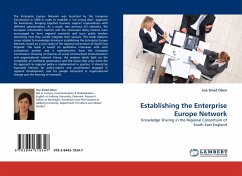
The Process of Establishing Legitimacy
How a New CEO Interacts with Multiple Stakeholders
Versandkostenfrei!
Versandfertig in 6-10 Tagen
22,99 €
inkl. MwSt.

PAYBACK Punkte
11 °P sammeln!
The process of establishing legitimacy in front of multiple stakeholder groups is a dynamic and multifaceted object through which a newly elected CEO has to navigate. The identification of practices, strategies and tools, applied by the new CEO in order to facilitate the establishment of respect, esteem and authority in front of internal and external audiences, is a vital element to fully understand the complexity of the CEO succession period. The perception, framing and sense-making of the new CEO's and stakeholders' actions as well as the interdependence between them, play an important role ...
The process of establishing legitimacy in front of multiple stakeholder groups is a dynamic and multifaceted object through which a newly elected CEO has to navigate. The identification of practices, strategies and tools, applied by the new CEO in order to facilitate the establishment of respect, esteem and authority in front of internal and external audiences, is a vital element to fully understand the complexity of the CEO succession period. The perception, framing and sense-making of the new CEO's and stakeholders' actions as well as the interdependence between them, play an important role in the leader integration process and the introduction of strategic changes. In this thesis the theoretical knowledge from the existing literature on the topic is combined with insights from a case study conducted in a Swiss company. This synthesis leads to a framework which summarizes how a new CEO interacts with different stakeholder groups during the post succession period in order to facilitate the establishment of legitimacy in front of internal and external stakeholders.












